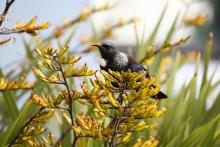Research on the impact of COVID-19 on Māori tends to highlight its negative outcomes. This strengths-based research project examines improvements in Māori wellbeing that occurred as a result of the COVID-19 pandemic
The Koha of COVID strengths-based research project examines improvements in Māori wellbeing that occurred as a result of the COVID-19 pandemic. It explores whether being forced to stop busy lives and engage with each other daily created greater whanaungatanga that encouraged, for example, more opportunities for intergenerational sharing of whakapapa stories, mātauranga Māori and Te Reo Māori – and it explores whether this improved whānau wellbeing.
It provides insight into positive changes that occurred within whānau, in particular whether there was a feeling of being more in control of whānau lives as Iwi moved to ensure hapū were protected from outsider spread of the virus into their rohe and as Māori health and social services rallied to meet social needs. It investigates whether greater social cohesion and the mobilisation of Iwi during the various lockdown periods positively affected whānau Māori.
Capturing this narrative is not only crucial for tangibly demonstrating the value of strong Māori relationships across whānau, hapū, Iwi and hāpori settings, but also important for enabling the positive outcomes for whānau Māori in respect of COVID-19, to be replicated and woven across government policy and Iwi and Māori service development, to catalyse substantive advances in Māori wellbeing.
The Research Team
Dr Lynne Russell (Ngāti Kahungunu, Rangitāne, Te Wainui ā Rua, Kāi Tahu, Kāti Māmoe, Ngāti Porou, Ngāti Raukawa) is the Kairangahau Matua – Hauora Māori (Senior Research Fellow - Māori Health) in Te Hikuwai Rangahau Hauora (the Health Services Research Centre) in Te Wāhanga Tātai Hauora (the Wellington Faculty of Health) at Te Herenga Waka (Victoria University of Wellington).
Although her research interests focus on Indigenous knowledge and healing practices used in recovery from trauma associated with mental distress and suicide loss, as a Māori academic researcher, she leads and supports numerous projects in other health-related fields, including a number that are COVID-19-related. She is particularly passionate about the amplification of Indigenous voices most readily silenced in society.
